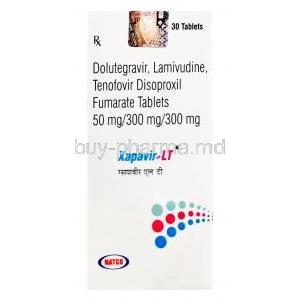Lamivudine
Uses
Lamivudine is used together with other anti-retroviral medicines in the treatment of HIV-1 infection and chronic hepatitis b virus (HBV) infection.
How it Works
Lamivudine is a nucleoside analogue, it works by destroying CD4 helper cells and stopping the HIV virus from spreading.It blocks the action of the Reverse Transcriptase enzyme which helps the virus replicate, this results in destroying the viral HIV chain
Common Side effects
Patients who take Lamivudine may suffer from such side effects;
Fatigue,
Headache,
Insomnia,
Dyspepsia,
Nausea,
Cramps and Abdominal pain,
Dizziness,
Ear and/or Nasal infection,
Sore throat,
Skin rash,
Muscle pain,
Fever,
Chills,
Diarrhoea
Nevirapine
Uses
Nevirapine is used in the treatment to suppress the HIV virus and preventing it from infecting the immune system in the body
How it Works
Nevirapine is not recomended to be used on its own, this is because that the virus can become rapidly resistant to treatment if monotherapy is used. Nevirapine as a NNRTI (non-nucleoside reverse transcriptase inhibitor) blocks the activity of the reverse transcriptase (RT) viral enzyme by biding to the NNRTI pocket on the enzyme. this directly interferes with the enzymes ability to replicate the HIV virus DNA material thus slowing down the virus from spreading. Nevirapine helps kepping the level of HIV virus as low as possible which minimizes the chance of developing AIDS in patients
Common Side effects
Patients who take Nevirapine may suffer from such side effects;
Rash,
Headache,
Stiff muscles,
Decrease in granulocyte count,
Vomiting,
Allergic reaction,
Nausea,
Abdominal pain,
Fatigue,
Fever,
Increased liver enzymes,
Diarrhoea
Stavudine
Uses
Stavudine is an anti-retroviral medicine, used in the treatment to suppress the HIV virus and preventing it from infecting the immune system in the body
How it Works
Stavudine slows the progress of HIV infection, but it is not a cure. Stavudine is a NNRTI (non-nucleoside reverse transcriptase inhibitor) which is given for a short period of time, when other NNRTI's are not suitable. Stavudine is usually taken with 3 or more other anti-retroviral medicines at the same time as a combination therapy. Stavudine as an NNRTI directly interferes with the enzymes ability to replicate the HIV virus DNA material thus slowing down the virus from spreading and keeping it at bay
Common Side effects
Patients who take Stavudine may suffer from such side effects;
Fatigue,
Vomiting,
Headache,
Muscle pain,
Nausea,
Unusual weight loss or gain,
Dizziness
Introduction
Triomune is a combination drug which is used in the treatment of Human Immunodeficiency Virus (HIV). It consists of 3 drugs, which are Nevirapine, Lamivudine, and Stavudine. Triomune does not cure HIV, but it reduces the growth of HIV in the body thereby promoting immune system function.
Use
The Triomune tablet is used to treat patients with HIV. Usually, a Nevirapine tablet is given first to the patient and depending on the patient’s tolerance, other medications are prescribed. Usually with HIV, there is a decrease in the number of CD4+ cells that are responsible to maintain immunity in the body. These are immune cells which provide resistance from diseases. Triomune inhibits the replication of HIV in the body and also increases CD4+ cells in the body.
Dosage and administration
There are three separate drugs which constitute Triomune. Any person suffering from HIV is first given Nevirapine tablets of 200 mg dosage strength. The patient has to take the tablets twice a day and his tolerance is checked after 2 weeks. If the patient develops any severe side effects or allergies, then the medicine is stopped immediately. If the patient shows tolerance, then other medications can be given to him or her as determined by the doctor. Triomune 30 is available in a combination of 30 mg, 150 mg, and 200 mg for people weighing between 30-60 kg and Triomune 40 is available in a combination of 40 mg, 150 mg, and 200 mg for those weighing more than 60 kg. The medicine must be taken exactly as prescribed by the physician and do not increase the dosage at any time unless recommended by the physician. Consult with your physician immediately if you have any doubts regarding the proper dosage.
Warning
Inform the doctor regarding any allergies that you have before being prescribed this medication. If you experience any allergies or discomfort while on this medication, stop taking it and consult the doctor immediately.
Inform the doctor about your medical history, if you suffer or have suffered from any liver ailments or kidney disease. Previous surgeries that you have undergone must be informed to the doctor as well.
Inform the doctor if you have suffered from liver inflammation or skin rashes while on Nevirapine medication.
Avoid intake of the medicine in case of low count of red blood cells and white blood cells in the body.
Inform the doctor about your medical history, if you suffer or have suffered from any liver ailments or kidney disease. Previous surgeries that you have undergone must be informed to the doctor as well.
Inform the doctor if you have suffered from liver inflammation or skin rashes while on Nevirapine medication.
Avoid intake of the medicine in case of low count of red blood cells and white blood cells in the body.
Side effects
It has several side effects ranging from mild to severe ones that are listed below,
Nausea, dizziness, and vomiting.
Severe peripheral neuropathy.
Liver inflammation and toxicity as this medicine increases lactic acid formation in the body that may lead to liver cirrhosis in extreme cases.
Renal failure.
Pancreatitis.
Difficulty in breathing.
Loss of appetite.
Weight loss.
Nausea, dizziness, and vomiting.
Severe peripheral neuropathy.
Liver inflammation and toxicity as this medicine increases lactic acid formation in the body that may lead to liver cirrhosis in extreme cases.
Renal failure.
Pancreatitis.
Difficulty in breathing.
Loss of appetite.
Weight loss.










